Unaware of Key Govt Schemes, 100 Tribal Families Find Guardian Angels in Maha Couple!
A Maharashtra couple is using several forgotten government schemes to resolve issues like illiteracy, health, poverty, unemployment. So far 100 tribal families have benefited
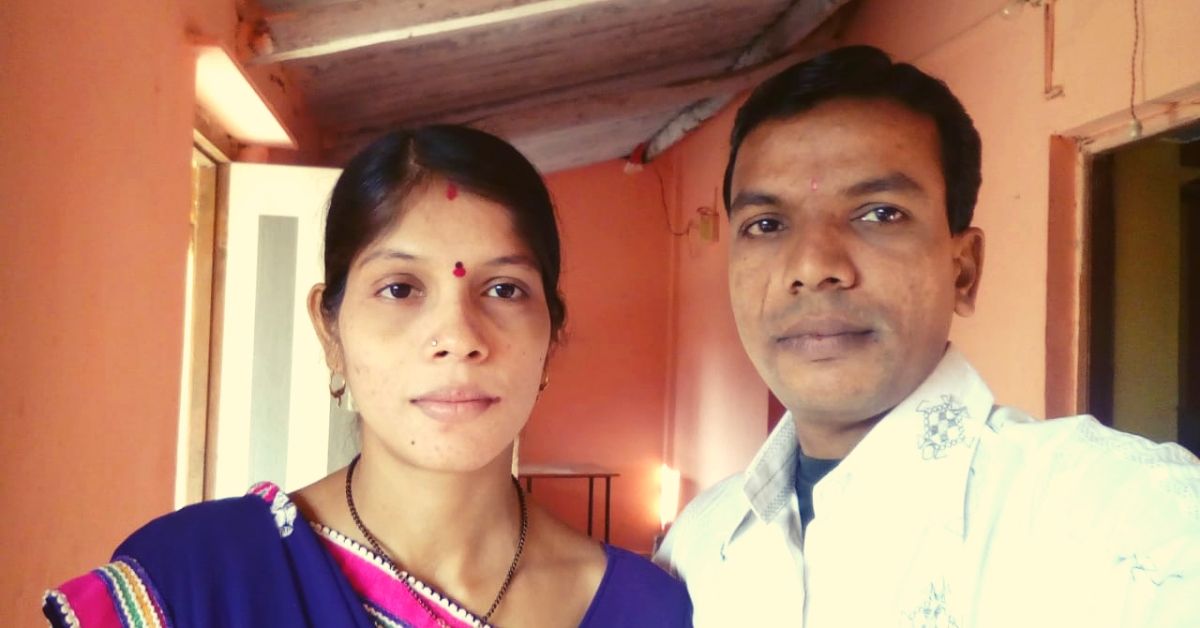
Draupadi Waghmare, a resident of Khalapur in Raigad begins each day at 5 am to make sure she gets the freshest vegetables for her regular customers.
After preparing lunch for her children, the ‘bhaajiwaali’ (Marathi for vegetable vendor) treks her way to a sabzi mandi or vegetable market and spends her morning choosing the best produce that she can get. Around noon she begins her daily rounds in the village selling vegetables and within a couple of hours her cart becomes empty.
By the time Draupadi wraps up her work, her kids are back from school. Though she cannot read or write, the single mother spends the evening monitoring whether her children are revising what they learnt in school.
She earns around Rs 20,000 every month from selling vegetables and has repaid half of the loan that her late husband had taken. She hopes to repay all the debt in the next couple of months.
To put things in perspective, she now has her own house, a stable source of income and children who study in school.
However, Draupadi’s situation in 2018 was completely different after her husband succumbed to tuberculosis. He was a daily wage labourer and had taken a loan of Rs 20,000 from a fellow villager. For his cremation she was forced to borrow another Rs 5,000.
Just when life was going downhill, Bhagwan Sawant and his wife Poonam came into the picture to solve her problems.

The husband-wife duo run an NGO, Jan Kalyan Sanstha, that works towards empowering the tribal (adivasi) community in four talukas of Raigad district namely Karjat, Khalapur, Pali and Sudhagad.
To begin with, the couple helped Draupadi get a tribal caste certificate. Under the Pradhan Mantri Awaas Yojana (Gramin), the government gives Rs 1.25 lakhs to adivasis to build a pucca house. Meanwhile, the State Tribal Development Department (TBB) gives Rs 25,000 to widows for starting a small-time business under the Tribal Sub Plan’s special scheme, the Nucleus Budget.
Draupadi judiciously utilised both schemes and started afresh. Meanwhile, Bhagwan solicited the help of the Mumbai-based Rajani Foundation to sponsor her children’s education.
Draupadi is one of the many beneficiaries who has used the existing government schemes to make life better.
Having been born and raised in the tribal community, Bhagwan always wanted to emancipate his people. Though his primary source of income is farming, Bhagwan has been working in the social sector since 2009, and finally in 2015, started his own foundation.
Speaking exclusively to The Better India (TBI), he says,
While growing up, I noticed the difference between being literate and being educated. Literacy is of no use if you cannot benefit from government provisions made specially for us. Issues like education, health, housing can be resolved just by procuring a tribal certificate from the gram panchayat. And for this, education and awareness is important.
He further adds, “We often tend to ignore speeches where our politicians talk about various schemes. Some wrong perceptions of using these schemes are the innumerable visits to the government offices and standing in long queues. However, with the right procedure, it does not take much time.”
Most of the people residing in tribal hamlets are daily wage labourers earning up to Rs 300 per day. Hence, when there is an unforeseen situation, wedding or any occasion that requires a huge sum, they borrow money.
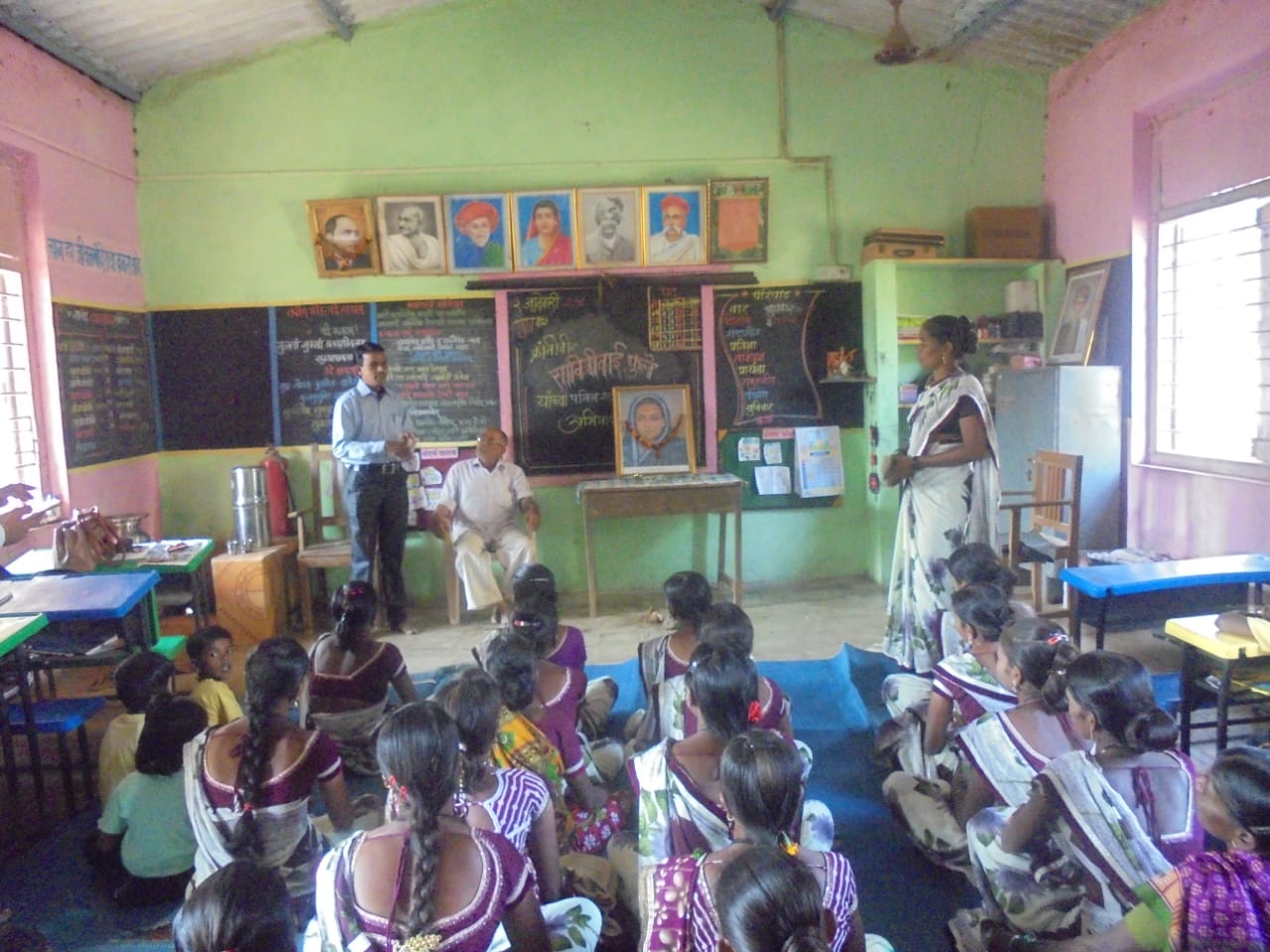
Most of the tribals are brick workers who sit at home for four months during the monsoon season. This further escalates their poverty. Children are forced to drop out of schools and work when parents cannot repay the debt or cannot afford even one meal a day, says the 34-year-old.
As for Poonam, she has studied till class ten post which she moved to Khalapur to join an NGO, “I always wanted to help the needy so I volunteered with Pravaha NGO where I met Bhagwan,” she tells TBI. She is now a part-time tailor and helps Bhagwan to spread awareness.
Here are some other government and non-government schemes that the couple is using to change lives:
Caste Certificate
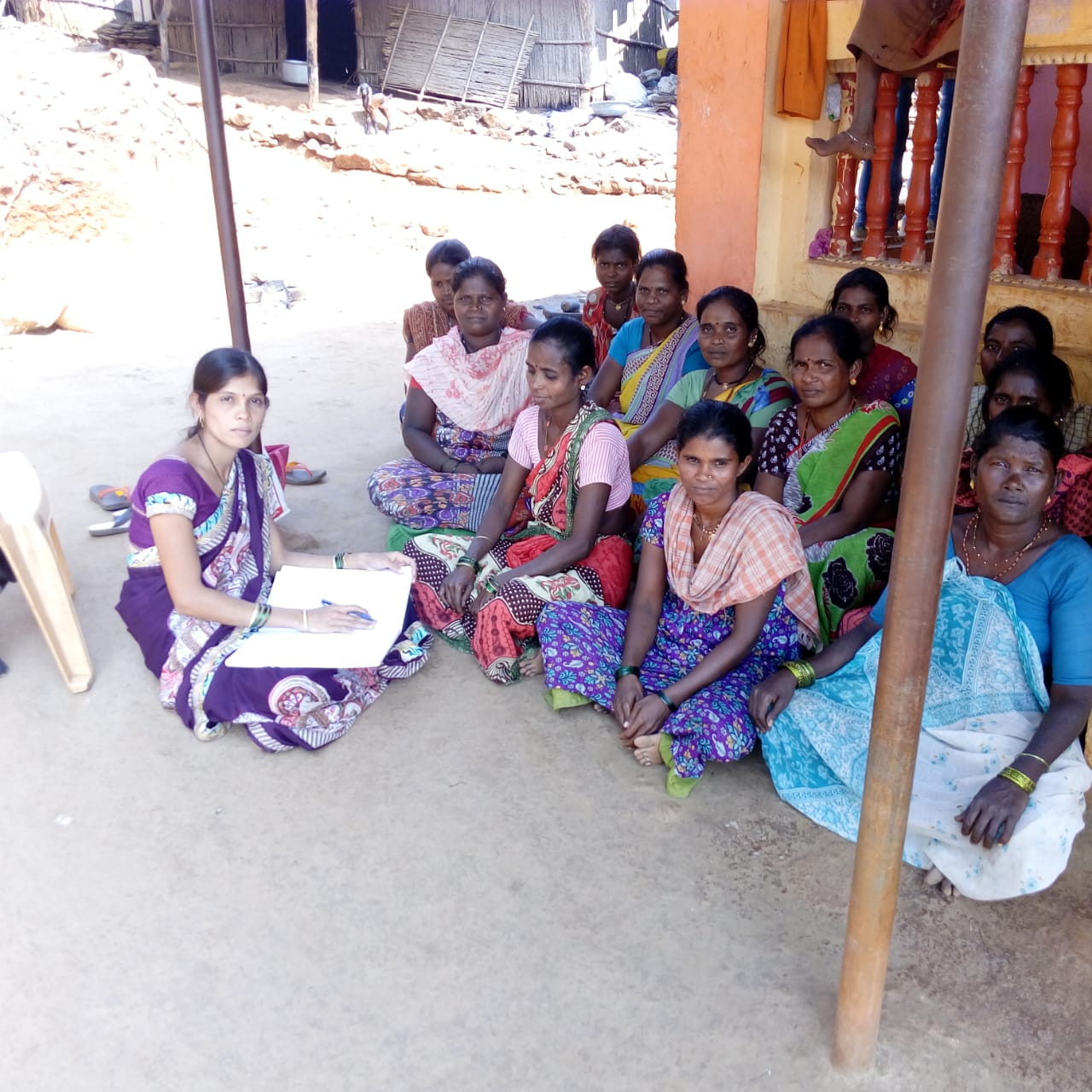
The duo has helped 219 tribals across four talukas in procuring the tribal certificate. Poonam has been leading the awareness programmes on the certificate. “When you educate a woman, you educate an entire family,” she quotes the famous African proverb.
From time to time, she holds discussions with the women from every tribal village and tells them about multiple benefits that can only be availed with the help of the certificate.
Health
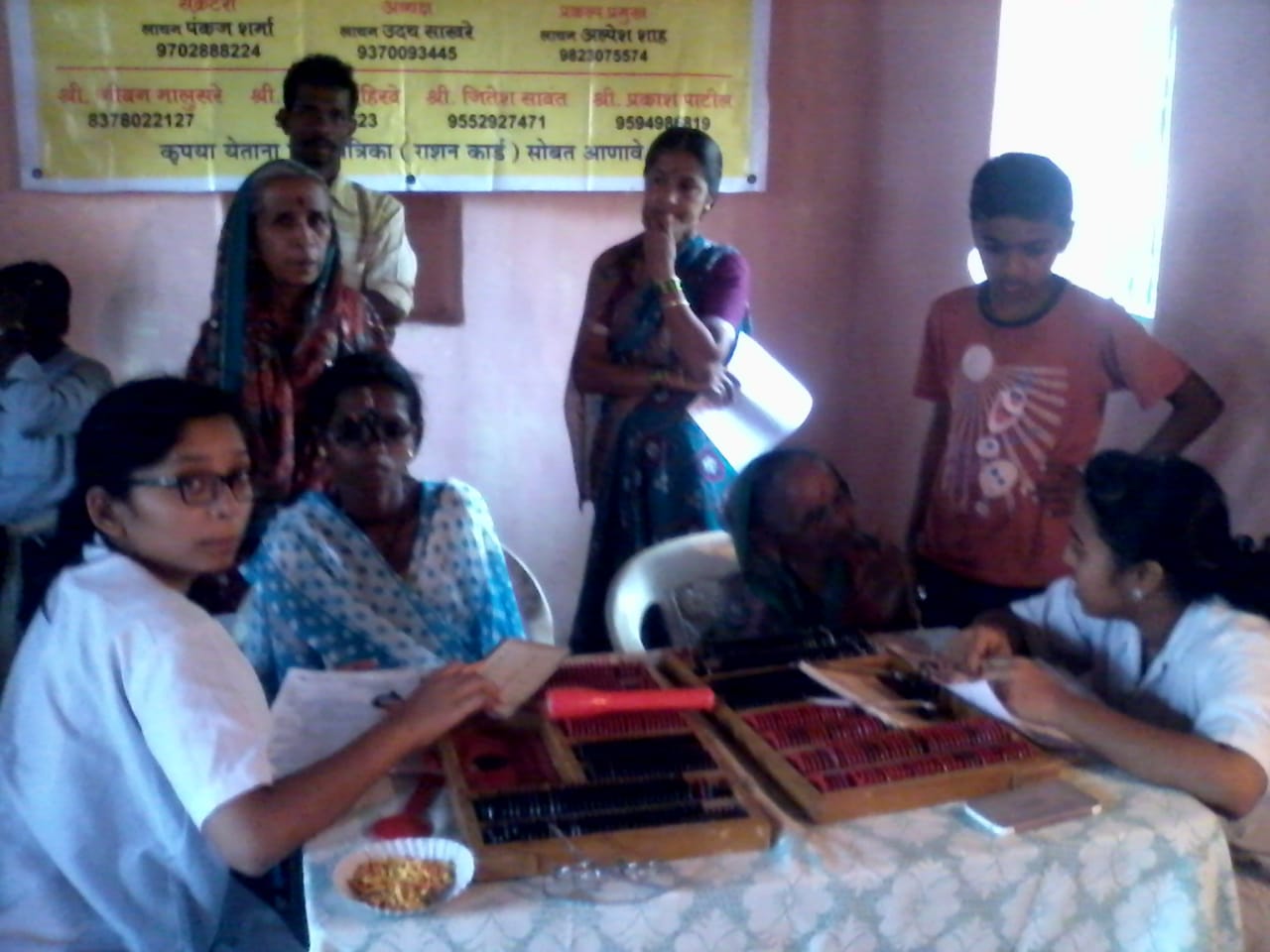
Having worked with other NGOs in the past, Bhagwan has a strong network that involve experts of various subjects. He pulled a few strings and got MGM Medical College & Hospital on board.
Around 15 doctors visit Raigad once in a year and organise health camps for the tribals. From checking diabetes, HIV, Blood Pressure to even conducting ECGs, free tests and medicines are given to the people.
In case if anyone gets detected with a serious illness like HIV, then the couple avails the Mahatma Jyotiba Phule Jan Arogya Yojana. Under this scheme the yellow ration card holders can get an insurance of Rs 1.5 lakh rupees. Their treatment and medicines are covered under this scheme.
Last year, a cataract camp was also organised and around 14 elders were treated for free by a Panvel-based eye clinic.
Sanjay Gandhi Niradhar Anudan Yojana
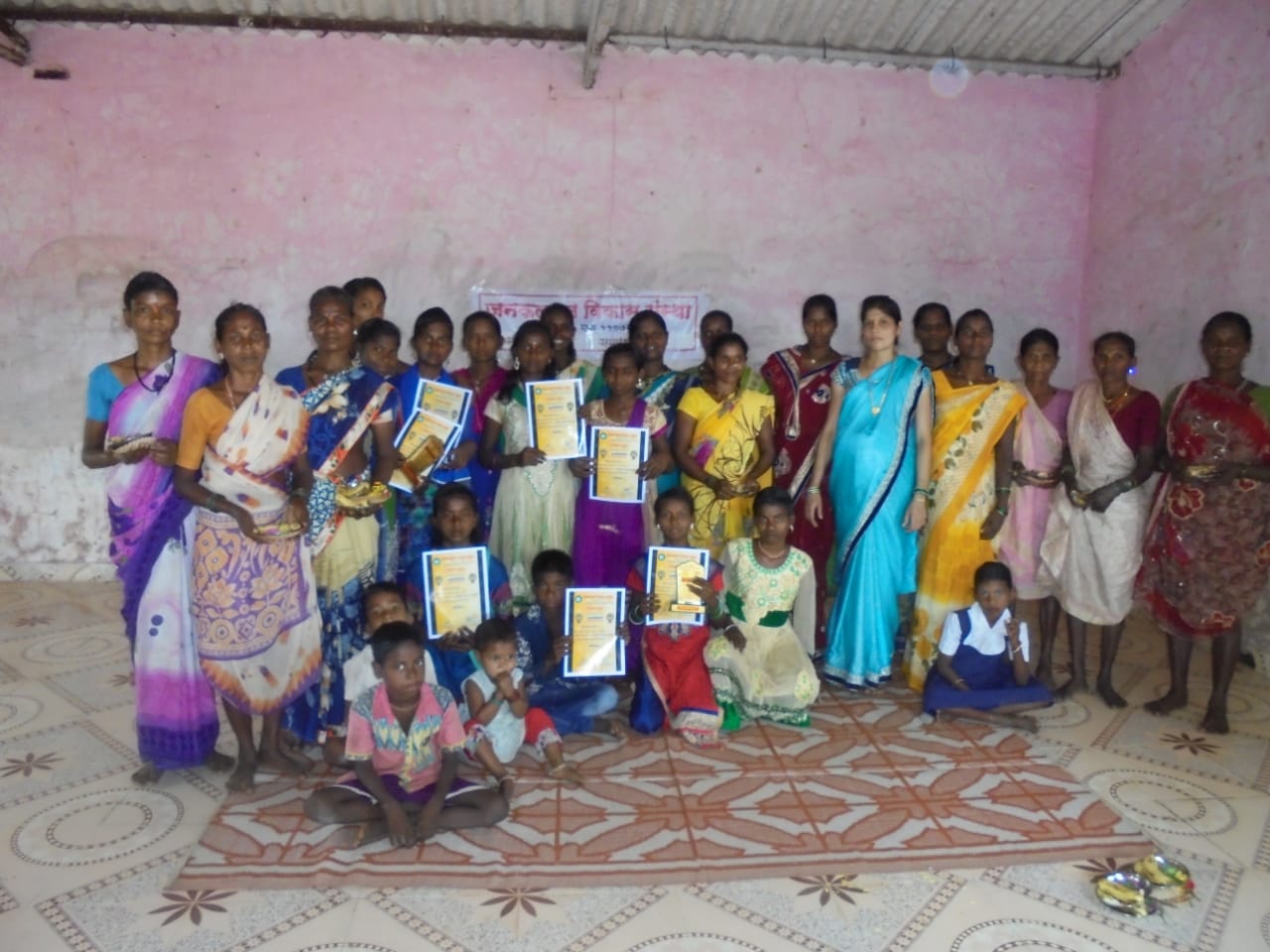
This scheme is applicable to:
-destitute persons below 65 years of age
-orphaned children
-all types of disabled people; people suffering with critical illnesses
-destitute windows including those of farmers who committed suicide
-destitute divorced women or women who are in the midst of a divorce and
-outraged women and women freed from prostitution.
Under this scheme, Rs. 600 per month is given to a single beneficiary and Rs. 900 per month if there are two or more beneficiaries in the family. In case of an early death, the wife is eligible to Rs 25,000, says Poonam.
Around 52 women and 15 people with a disability have benefited from this scheme.
Education
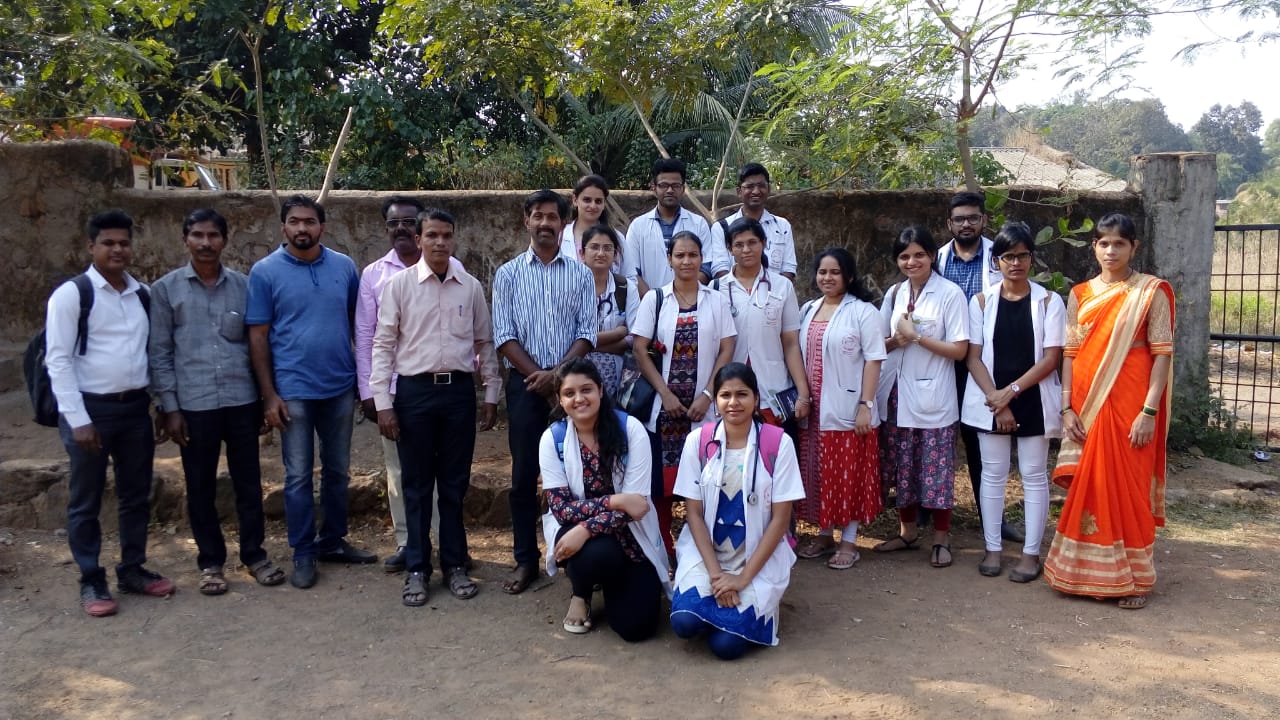
Under the Suvarna Mahotsavi Pre Matric Scholarship, tribal children studying between class 1 and 10 are provided financial assistance to fulfil their minor educational needs. Depending on the class, the students are given Rs 1,000 to Rs 2,000 every year.
41 tribal children were enrolled in school by the couple via this scheme, “Parents’ main motivation is the money. The government introduced it to put an end to child labour. This scheme is one of the path-breaking schemes that can uplift the future generations,” says Poonam.
The couple has reached out to more than 1,500 tribals and benefited close to 100 families with government schemes.
While the impact figure may seem huge, the challenges and difficulties have been innumerable.
From convincing the tribals that the NGO is working to empower them to the many trips to government offices to avail schemes, the couple has been running from pillar to post since the last four years.
Building trust was the most difficult part. It took us a lot of months to break into their social circle but it was all worth it. Our reward is seeing them benefit from these schemes. We will continue our mission for as long as we can, the couple signs off.
Also Read: Couple Began Hospital in a Hut 25 Years Ago, Now Treats Over 1 Lakh Tribals Every Year
(Edited by Saiqua Sultan)
Like this story? Or have something to share?
Write to us: [email protected]
Connect with us on Facebook and Twitter.
If you found our stories insightful, informative, or even just enjoyable, we invite you to consider making a voluntary payment to support the work we do at The Better India. Your contribution helps us continue producing quality content that educates, inspires, and drives positive change.
Choose one of the payment options below for your contribution-
By paying for the stories you value, you directly contribute to sustaining our efforts focused on making a difference in the world. Together, let’s ensure that impactful stories continue to be told and shared, enriching lives and communities alike.
Thank you for your support. Here are some frequently asked questions you might find helpful to know why you are contributing?


This story made me
-
97
-
121
-
89
-
167











